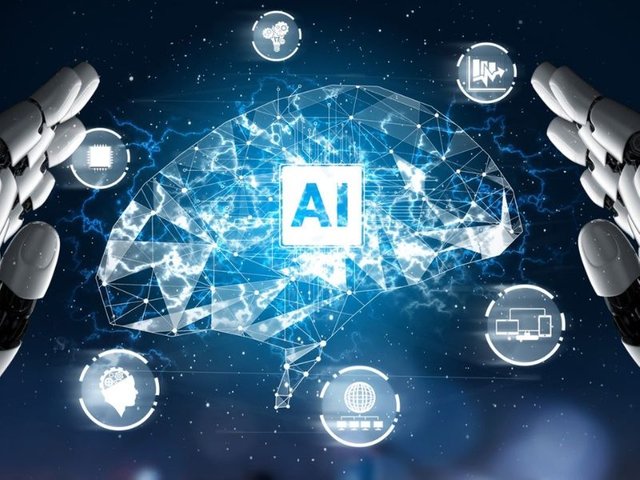Can AI Replace Human Customer Support?

As artificial intelligence (AI) continues to advance, it’s reshaping industries across the globe, and customer service is no exception. From chatbots to virtual assistants, AI is increasingly taking on tasks traditionally handled by human agents. However, the question remains: can AI fully replace human customer support? While AI brings unparalleled efficiency and scalability, it has limitations that make the human touch irreplaceable in certain scenarios. Let’s dive into this complex question by exploring the strengths and limitations of AI in customer support and the unique value humans bring to the table.
The Strengths of AI in Customer Support
AI excels in areas where speed, efficiency, and scalability are critical. Here are the key benefits AI brings to customer support:
1. 24/7 Availability
AI-powered systems operate round-the-clock, ensuring customers receive instant assistance at any time of the day. This constant availability enhances customer satisfaction and eliminates delays caused by human limitations such as working hours and breaks.
2. Instant Responses and High Efficiency
With advanced natural language processing (NLP), AI tools can analyze queries and provide responses within seconds. They can handle multiple interactions simultaneously, significantly reducing wait times during peak hours.
3. Cost-Effectiveness
By automating routine tasks, AI reduces the need for large customer support teams. Businesses save on training and staffing costs while maintaining service quality.
4. Consistency and Accuracy
AI ensures uniformity in responses across all interactions, minimizing errors caused by miscommunication or fatigue. Regular updates to the AI’s knowledge base keep information accurate and current.
5. Data Analysis and Personalization
AI systems can analyze vast amounts of customer data to provide personalized recommendations, anticipate customer needs, and improve overall service delivery.
6. Scalability
AI tools can effortlessly scale to handle increased customer queries during product launches, sales events, or other high-demand periods.
The Limitations of AI in Customer Support
Despite its strengths, AI has notable limitations that make it unsuitable for certain aspects of customer support:
1. Lack of Emotional Intelligence
While AI can recognize sentiment to some extent, it cannot genuinely empathize with customers. In emotionally charged situations, such as grievances or complaints, the absence of human empathy can lead to dissatisfaction.
2. Complex Problem-Solving
AI struggles with nuanced or highly complex issues that require creativity, critical thinking, or domain-specific expertise. In such cases, escalation to human agents is necessary.
3. Limited Understanding of Context
AI’s understanding of context is limited to the data it’s trained on. It may misinterpret queries with ambiguous language, sarcasm, or cultural nuances.
4. Customer Preference for Human Interaction
Many customers prefer speaking to a human, especially for sensitive issues or when seeking reassurance. The inability of AI to build rapport and trust can be a drawback in such scenarios.
5. Dependence on Data Quality
AI’s performance is directly linked to the quality of data it’s trained on. Inaccurate, biased, or outdated data can result in flawed responses and negative customer experiences.
The Irreplaceable Human Touch
Humans bring qualities to customer support that AI cannot replicate. Here’s why human agents will always play a crucial role:
1. Empathy and Emotional Connection
Human agents can listen, empathize, and provide comfort to customers in ways AI cannot. This emotional connection builds trust and fosters loyalty.
2. Adaptability and Creativity
Humans excel at adapting to unexpected situations, brainstorming creative solutions, and handling unique or unprecedented challenges.
3. Complex Decision-Making
Human agents can weigh various factors, consider ethical implications, and make judgment calls that go beyond algorithmic capabilities.
4. Building Relationships
Human interactions help establish long-term relationships with customers, creating a sense of loyalty that automated systems cannot achieve.
The Future: A Hybrid Model
Rather than viewing AI as a replacement for human agents, the future of customer support lies in a hybrid model where AI and humans work collaboratively. This approach leverages the strengths of both:
AI for Efficiency: AI can handle repetitive tasks, answer common queries, and assist with data analysis, freeing human agents to focus on more complex issues.
Humans for Emotional Intelligence: Human agents can step in for cases that require empathy, nuanced decision-making, or creative problem-solving.
Enhanced Training and Support: AI can provide real-time suggestions and training to human agents, improving their performance and reducing stress.
Conclusion
While AI has transformed customer support by delivering efficiency, scalability, and cost savings, it cannot fully replace the human touch. Emotional intelligence, creativity, and the ability to build meaningful relationships are qualities unique to human agents. By embracing a hybrid model that combines AI’s strengths with human expertise, businesses can provide exceptional customer service that meets both practical and emotional needs. AI isn’t here to replace humans but to empower them, paving the way for a future where customer support is both innovative and deeply human.